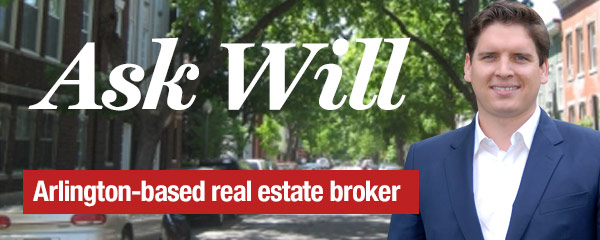
This regularly-scheduled sponsored Q&A column is written by Will Wiard, Arlington-based real estate broker, voted one of Washington’s Best Realtors of 2015 by Washingtonian. Please submit your questions via email.
Q: What does the Virginia Residential Property Disclosure Statement do and whom does it protect?
A: If you’re selling a home in Virginia you are required to provide a signed “Residential Property Disclosure Statement” to the buyer. As noted in an online attachment to the form (not written out in the disclosure itself), the statement notifies the buyer that the seller is not in a position to disclose or speak to any of the conditions of the property. By doing this, the statement essentially puts the responsibility of exploring and understanding the condition of the property in the buyer’s hands.
The signed disclosure form must be provided to the buyer before any contract terms can take effect. If the seller does not provide the statement, the buyer may void the contract.
Buyers Beware
Virginia is referred to as a “buyer beware” state, which means a seller does not have to proactively disclose any problems with the home. This leaves it up to the buyer to find any issues during inspection. Clearly, as a buyer, it’s important to do your due diligence. When choosing your agent, ask him or her about prior experience with qualified home inspectors in the area. A good agent can connect you with a seasoned inspector and offer an extra eye for anything that may cause immediate concern (even prior to inspection).
As a side note, a seller cannot knowingly lie or attempt to hide or cover up a problem. For example, covering a crack in the foundation with rug or putting a large piece of furniture in front of a hole in the wall. In many cases, if a seller does this they could be subject to legal action even after the property closes and deed is transferred.
Some Exceptions
There are some exceptions where the disclosure statement typically is not required. For example, it may not apply in sales between co-owners or between relatives, or in certain tax, bankruptcy, trust and foreclosure sales.
Also, a builder selling new construction is not required to complete the disclosure form. However, the builder/seller does need to provide a written disclosure of any known defects that are in violation of the building code.
Thank you for this week’s question. Please keep them coming to [email protected]. This is also a great place to reach me for anyone looking to buy or sell a home in the Arlington area.
The views and opinions expressed in the column are those of the author and do not necessarily reflect the views of ARLnow.com.

